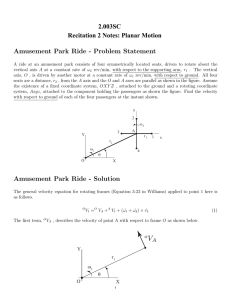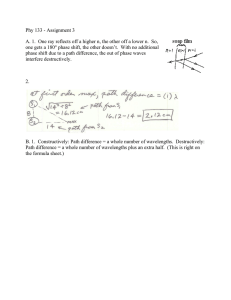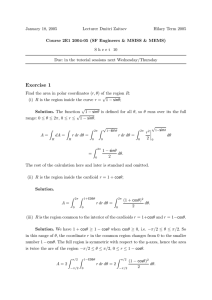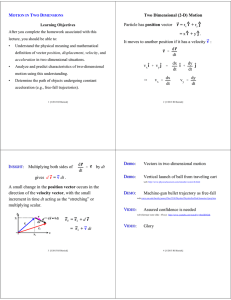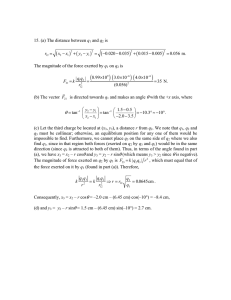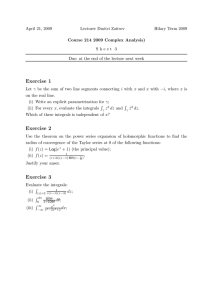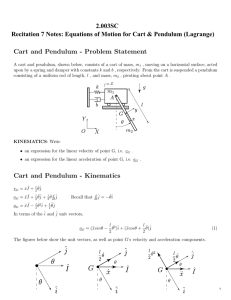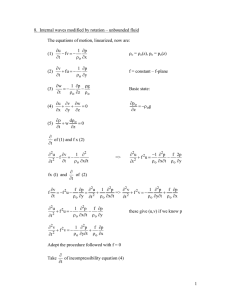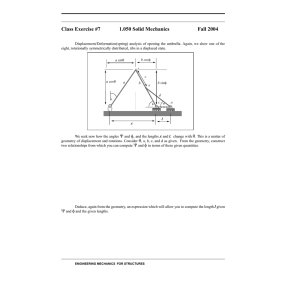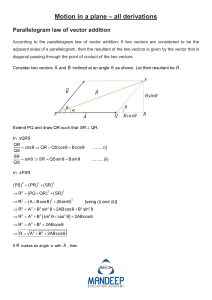Math 234 section 302/307 Notes on polar coordinate We want to
advertisement
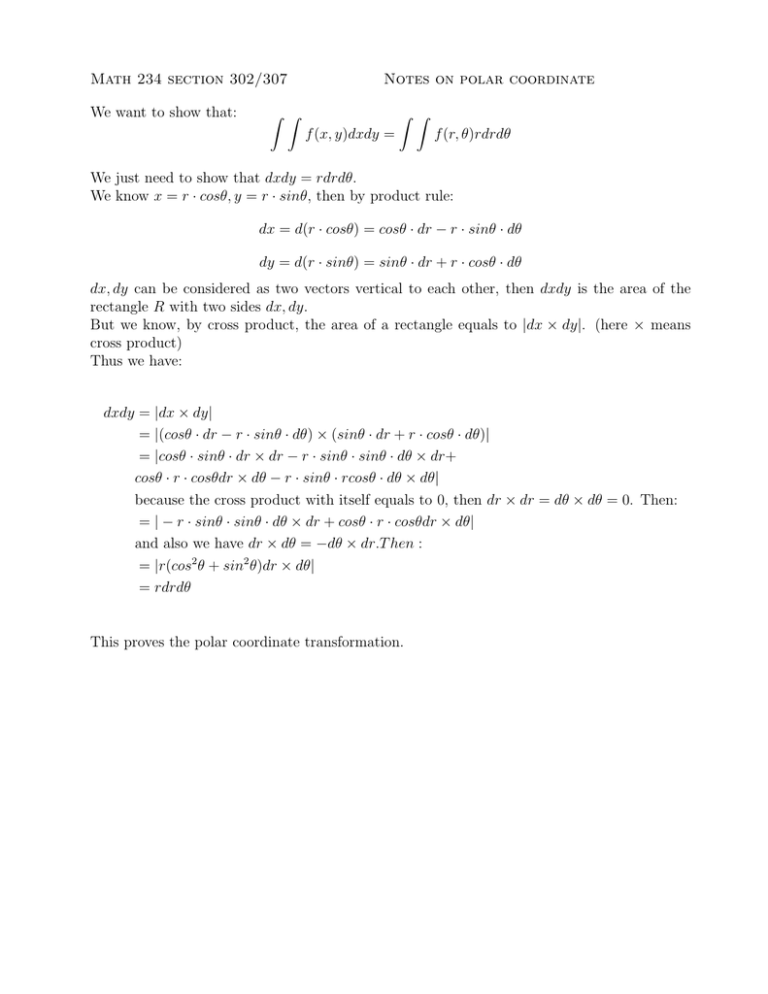
Math 234 section 302/307 We want to show that: Notes on polar coordinate Z Z Z Z f (x, y)dxdy = f (r, θ)rdrdθ We just need to show that dxdy = rdrdθ. We know x = r · cosθ, y = r · sinθ, then by product rule: dx = d(r · cosθ) = cosθ · dr − r · sinθ · dθ dy = d(r · sinθ) = sinθ · dr + r · cosθ · dθ dx, dy can be considered as two vectors vertical to each other, then dxdy is the area of the rectangle R with two sides dx, dy. But we know, by cross product, the area of a rectangle equals to |dx × dy|. (here × means cross product) Thus we have: dxdy = |dx × dy| = |(cosθ · dr − r · sinθ · dθ) × (sinθ · dr + r · cosθ · dθ)| = |cosθ · sinθ · dr × dr − r · sinθ · sinθ · dθ × dr+ cosθ · r · cosθdr × dθ − r · sinθ · rcosθ · dθ × dθ| because the cross product with itself equals to 0, then dr × dr = dθ × dθ = 0. Then: = | − r · sinθ · sinθ · dθ × dr + cosθ · r · cosθdr × dθ| and also we have dr × dθ = −dθ × dr.T hen : = |r(cos2 θ + sin2 θ)dr × dθ| = rdrdθ This proves the polar coordinate transformation.
